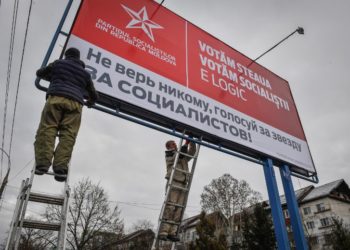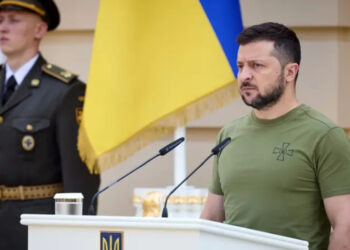Russia has begun to build a military base in the northwestern Syrian town of Afrin, which is under control of the Syrian Kurdish YPG militia, after an agreement with the Kurds, the militia said on Monday.
Spokesman of Kurdish People’s Protection Units (YPG) Redur Xelil announced the deal in remarks to Reuters. Russia had already deployed troops and armored vehicles in Jendaris, Afrin, to train local YPG forces.
“The Russian presence … comes in agreement between (the YPG) and the Russian forces operating in Syria in the framework of cooperation against terrorism and to help train our forces on modern warfare and to build a direct point of contact with Russian forces,” Xelil told Reuters in a written statement.
He added that the agreement was first of its kind.
Russian alignment with Syrian Kurds is not a new development but has not reached to this level before. It would likely to infuriate Turkey, which sees the YPG is an affiliated organization of its domestic militant group, the Kurdistan Workers’ Party (PKK).
It would be especially jarring for Ankara after Turkey has cultivated cordial relations with Russia, coordinating its operations in Syria with the Russian military. But Russian move is a clear-cut aspect of the cold logic of geopolitical thinking and national interest as it steers its Syrian policy through diverse partners whose strategies, goals, and priorities sharply conflict with each other.
Whatever Ankara expects from Moscow for its military endeavor in northern Syria, there are certain limits for conflict-free, ideal coordination given the different set of goals envisioned by both countries.
For Russia it was shoring up embattled President Bashar al-Assad, militarily and diplomatically, appeared as the core of its Syria policy, while it was the removal of Mr. Assad had until recently been the major policy for Turkey during the Syrian civil conflict. To that goal, Turkey had unwaveringly supported rebels to topple President Assad for six years.
Now, components of Turkey’s Syria policy have dramatically changed. The Turkish military’s incursion into Syria last August designed to push back Islamic State elements from the Turkish-Syrian border in a joint military offensive along with rebel allies, while also to roll back gains of the Kurdish militants in northern Syria to prevent the formation of a statelet along the border.
Turkey has even bombed Kurdish YPG forces in Afrin, Jendaris, where Russia is currently setting up a military base. Whether there would be further skirmishes in the future between the YPG and the Turkish troops after the arrival of Russian forces, it remains to be seen.
********
This article was possible thanks to your donations. Please keep supporting us here.





















